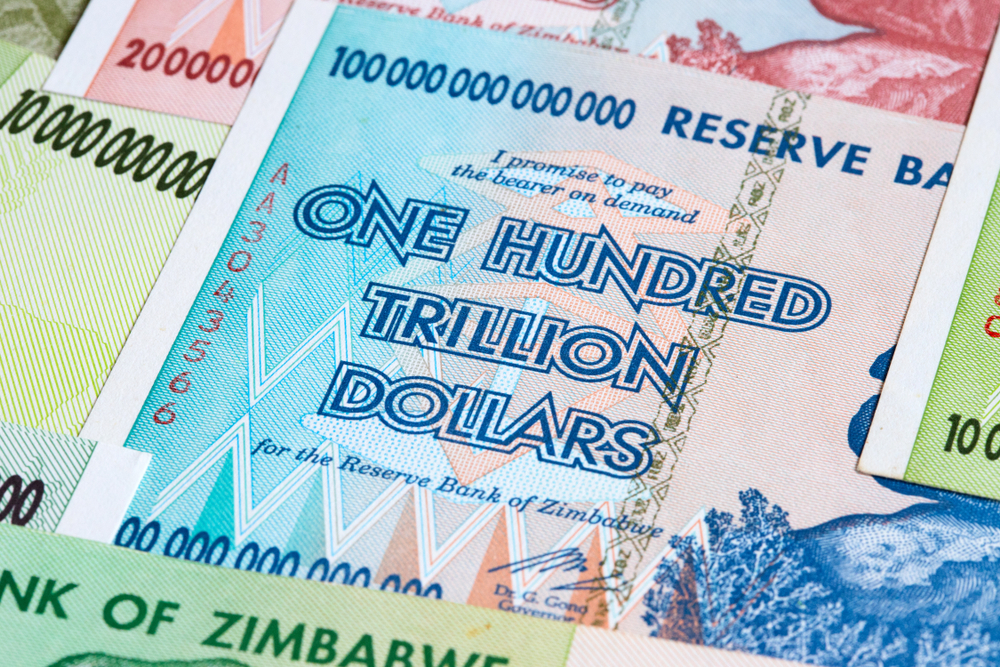News
Zimbabwe president praises re-introduction of local currency

Zimbabwe had for 10 years used the U.S. dollar and other foreign currencies after the Zimbabwean currency was dogged by hyperinflation. (Shutterstock Photo)
HARARE, Zimbabwe — Zimbabwe President Emmerson Mnangagwa on Tuesday praised the re-introduction of the Zimbabwe dollar as the sole legal tender in the troubled country as a “return to normalcy.”
Zimbabwe had for 10 years used the U.S. dollar and other foreign currencies after the Zimbabwean currency was dogged by hyperinflation.
Mnangagwa said it is the right time to scrap the use of foreign currencies, saying Zimbabwe’s economy is “now functional” enough to adopt the usage of a single, local currency.
“We were living in an abnormal situation.
We should actually be congratulated for taking this step,” he told reporters at a press conference on the sidelines of a wildlife summit in the resort town of Victoria Falls.
“What we have done is we have gone back to normalcy,” he said. “Normalcy is that the country must have its own currency.”
Mnangagwa said the possession of foreign currency is not outlawed, but people will not be able to use it to buy items locally.
Finance Minister Mthuli Ncube on Monday announced the Zimbabwe dollar as the sole legal tender. Before Ncube’s notice, Zimbabweans were using a multi-currency system dominated by the U.S. dollar after abandoning its own currency in 2009.
Zimbabwe later introduced a local currency called the bond note in 2016 to trade alongside the dollar, the British pound, the South African rand and other currencies. This bond note has now become theZimbabwe dollar.
Most Zimbabwean businesses and residents do not yet fully grasp the change, as they had been mainly using U.S. dollars to avoid the rapidly devaluing local bond note.
Most traders pegged their prices on the dollar, resulting in prices in local currency changing, as much as several times a day in response to rising black market dollar rates.
With banks experiencing widespread shortages of cash, businesses have been forced to resort to the illegal street market to get foreign currency in order to restock. Zimbabwe’s industry has been in the doldrums for more than a decade and the country imports most basic items.
Inflation is close to 98%, according to official figures, the highest since the 2009 collapse of the local currency.





















